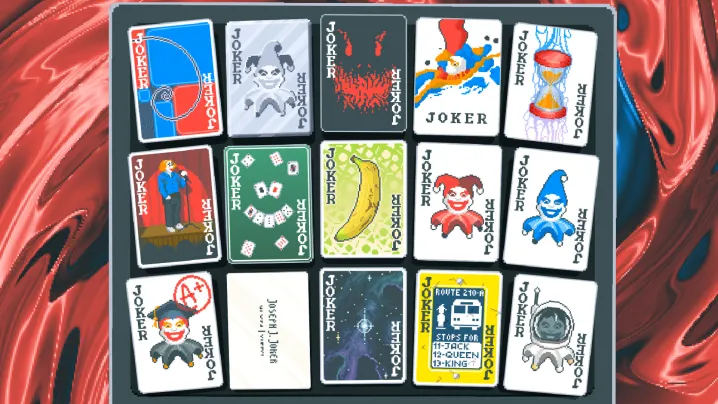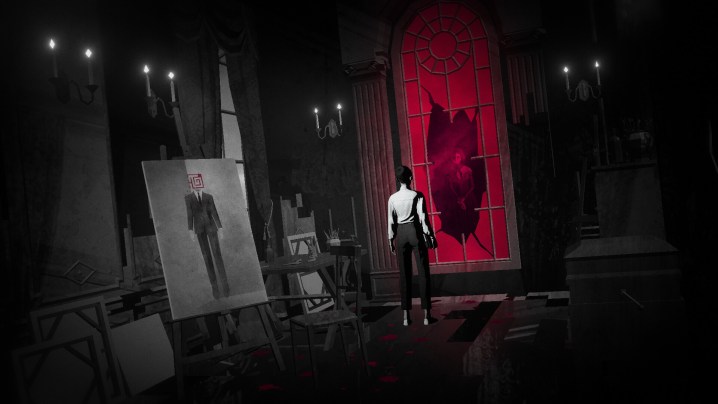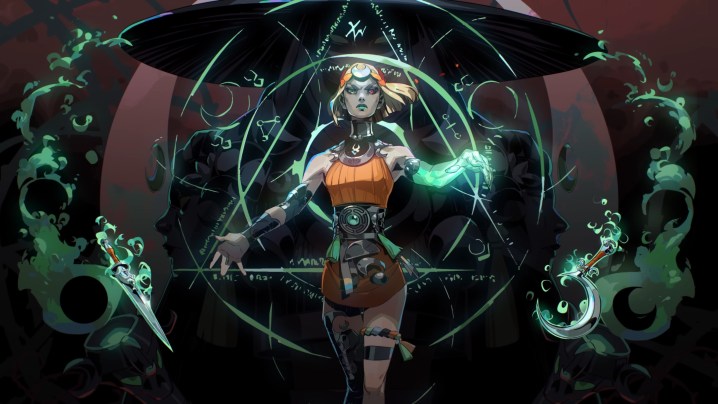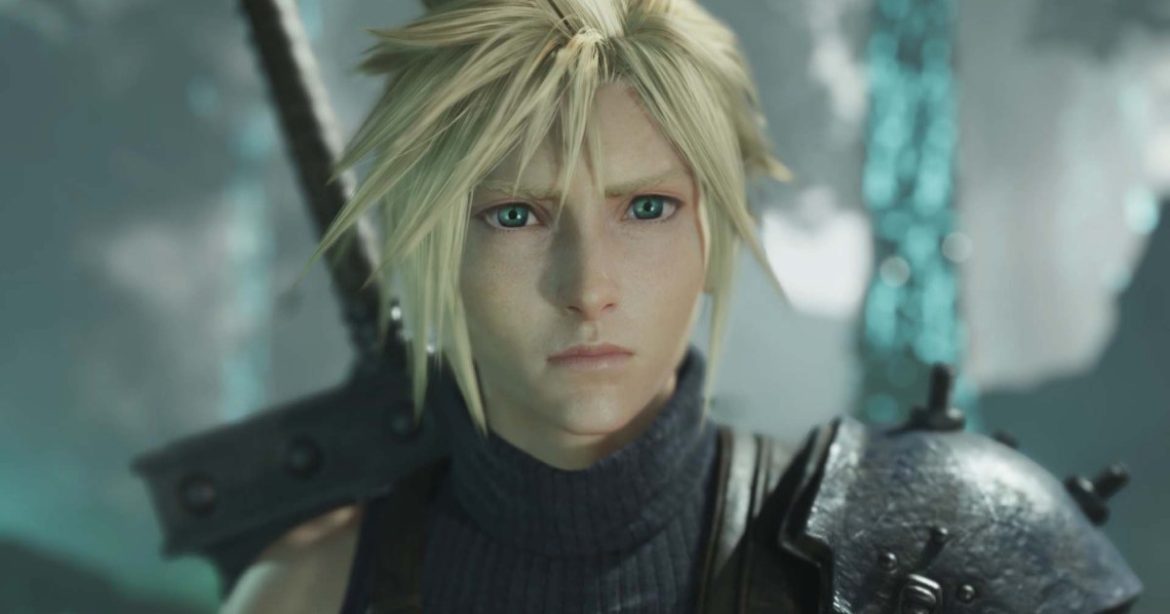On Monday morning, Geoff Keighley revealed the nominees for this year’s Game Awards. The list honored many of this year’s biggest games, from Astro Bot to Final Fantasy VII Rebirth. For anyone who has been following video games closely in 2024, it’s a predictable list that’s heavy on well-received big-budget games and one key indie breakthrough.
Of course, not everyone is happy. Discourse is already brewing on social media on everything from Black Myth: Wukong‘s Game of the Year nomination to Elden Ring: Shadow of the Erdtree making the cut despite being a DLC. As is the case every year, it’s a hodgepodge of deserving nominees, disappointing omissions, and downright weird picks. Let’s break down the biggest takeaways from this year’s list, from the surprises to the “snubs.”
Surprise: Balatro lands Game of the Year

Indie games have had a notoriously difficult time making a splash at the Game Awards (much more on that in a moment), but one did break through this year: Balatro. On paper, the poker roguelike isn’t the kind of game that typically gets a Game of the Year nomination. That category tends to favor flashy, big-budget games over innovative oddities. Balatro is the rare game to break that curse, fighting alongside giants like Astro Bot and Black Myth: Wukong. It deserves that spot too; Balatro is an ingenious work of game design that finds new depth in the classic deck of cards. It feels as foundational to its genre as Hades did in 2020.
-
Astro Bot and Final Fantasy VII Rebirth lead Game Awards 2024 nominations
-
What’s new in October 2024: 8 new games to look forward to
-
New Xbox Game Pass additions are looking quite wholesome
Snub: Other indies still struggle to make waves

Despite Balatro‘s big moment, The Game Awards still have a massive problem when it comes to indie games. It is next to impossible for indies to compete in most categories outside of a select handful designed for them. Neva managed to land a nomination for Best Art Direction, but that’s virtually the only breakthrough here aside from Balatro. 1000xResist missed out on Best Narrative, Lorelei and the Laser Eyes couldn’t nab recognition for its direction, Children of the Sun didn’t get honored for sound design while Call of Duty once again eased into the spot. This has long been a problem with the ceremony, but this year feels like a breaking point: It increasingly feels like no one is taking these nominations very seriously. A handful of popular zeitgeist games get shuffled into every category with little thought put in. It’s a failing on the jury that selects these nominations, but the Game Awards itself too, which is set up to favor those games in subtle ways — consider that the narrow Best Action Adventure is a category, but not Adventure, excluding as large swath of games. Until there’s a rethink of how nominations are created, The Game Awards feels less like the Oscars and more like the MTV Movie Awards.
Surprise: Silent Hill 2 hits big

Perhaps the biggest surprise of 2024 is Bloober Team’s Silent Hill 2. Before its release, fans of the PS2 classic were bracing for a clumsy remake that misunderstood the original horror game. As it turned out, Bloober Team nailed the assignment and delivered one of the year’s best. Now, the studio has four nominations to commemorate its work: Best Narrative, Best Audio Design, Best Score and Music, and a Best Performance nomination for Luke Roberts. A few of those nominations feel a bit lazy considering that the remake doesn’t stray very far from the original’s writing or music, but it’s great to see a happy ending for a studio that proved the doubters wrong.
Snub: Thrasher, Riven miss out on VR honors

It’s been a phenomenal year for VR gaming, and this year’s Best VR/AR Game category shows that. Batman: Arkham Shadow and Asgard’s Wrath 2 are both certified blockbusters that are shoe-ins for the awards. But as is always the case at The Game Awards, it feels like the tech’s best games tend to fall to the wayside in favor of VR ports of existing titles. This year, both Thrasher and Cyan Worlds’ excellent Riven remake — two of the year’s best even outside of VR — failed to get a spot, Meanwhile, VR versions of games like Metro and Metal: Hellsinger did. It’s a bit of a letdown considering the quality of something like Thrasher that was built with the tech in mind, but it’s hard to argue with the big games that made the cut.
Surprise: Super Mario Party Jamboree gets some love

With nominees this dull, it’s the little things that add some light. The most pleasant surprise for me this year is that Super Mario Party Jamboree got recognized in not one but two categories: Best Family Game and Best Multiplayer. The former isn’t surprising, but the latter is. Best Multiplayer tends to be reserved for high-skill online games and shooters, like Call of Duty: Black Ops 6. It’s not as friendly to a series like Mario Party, but this year’s installment earned its spot. It’s a solid package that finds the core board game experience at its best. With several inventive modes padding out the package, including the mass multiplayer Koopathalon and the co-op Bowser’s Ka-boom Squad, Jamboree deserves its place right next to the big boys.
Snub: Best Mobile game, in general

There are a few categories at the Game Awards that are so painfully out of touch with reality that you have to question the entire voting process for the show. Best Mobile Game is chief on that list, and it remains on top this year. Looking at the nominees every year, it becomes very apparent that a lot of voters don’t play a lot of mobile games. The category is often dominated by free-to-play games and big IP. Services like Apple Arcade and Netflix tend to walk away empty handed while middling games like Final Fantasy VII Ever Crisis waltz their way to the ceremony. This year is no different, as games like Netflix’s Arranger: A Role-Puzzling Adventure lost out to free behemoths like Pokemon Trading Card Game Pocket. Even Apple Arcade’s solid Sonic Dream Team couldn’t get recognition while microtransaction heavy gacha games did. One could make the argument that not enough people have subscriptions to the services that these games are on, but it’s a jury’s job to play and consider a wide array of games rather than the ones most easily available to them. To anyone who actually pays attention to the mobile or VR landscapes, it’s clear that there’s a disconnect.
Surprise: Kunitsu-Gami sneaks into Best Strategy Game

I’ll be honest: Finding genuine surprises on this list of nominees is a difficult task. Very little is exactly a surprise, as each field went about the way you’d expect. If it’s not clear from what I’ve said so far, it’s a disappointing field of easy nominees. So I can only focus on the small wins here, and Kunitsu-Gami: Path of the Goddess landing in Best Sim/Strategy Game fits that bill. Capcom’s oddball tower defense game is one of the year’s best, presenting a stylish and innovative spin on a classic genre. It’s unlike anything I’ve played and deserves its spot in what I’d call this year’s strongest category. Kunitsu-Gami will go head to head with Frostpunk 2, Manor Lords, Unicorn Overlord, and Age of Mythology Retold. That’s a stacked field.
Snub: Should Hades 2 have been nominated?

Perhaps the most notable omission from this year’s nominees is Hades 2. Despite being a critical darling, the roguelite received zero honors this year. That’s likely due to the fact that it’s still in early access, so the voting jury felt it wasn’t quite ready to judge. It’s understandable, but should it have been considered? After all, Manor Lords picked up two nominations despite being an early access game. Hades 2‘s excellent action already feels developed enough to earn it a spot in Best Action, and its already excellent soundtrack isn’t likely to change much before 1.0. I personally wouldn’t include it in a category like Game of the Year yet, but’s it’s another area where the nominations feel inconsistent. That leads to an overall lifeless batch of nominees that highlight the need for a methodology shakeup.




